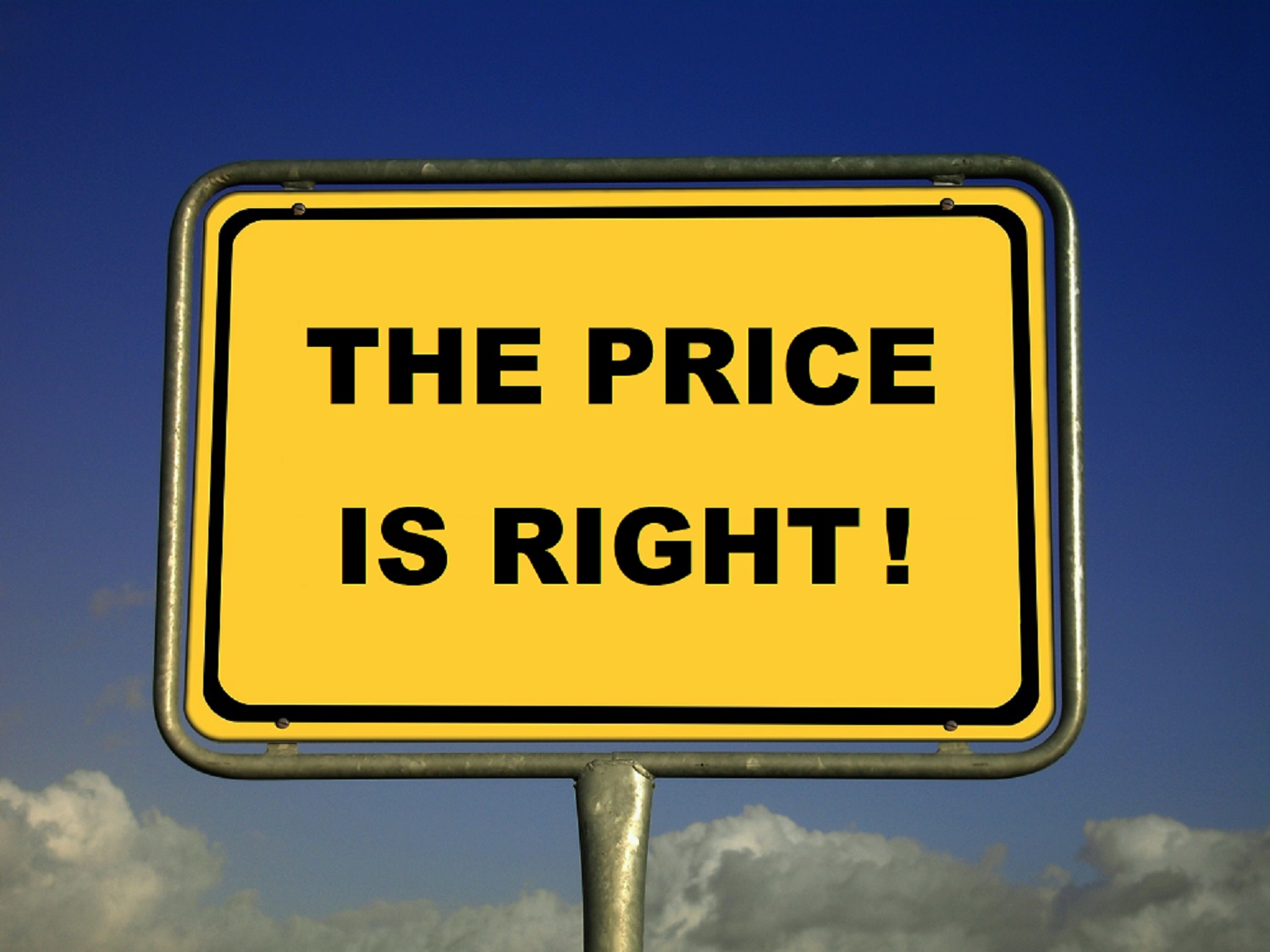The art of pricing is critical to every business. If you are too cheap then chances are you won’t actually make any money and after you factor in running costs and overheads (not to mention actually making a wage) you might be in the red. If you overprice your services too much, and particularly if you have strong competition, then chances are that you may attain very little business.
What are the different types of pricing and strategies?
These are just a few of the primary pricing strategies which are out there:
Discounting
This can be a powerful tool for products, but for services, I am not a fan of discounting. Let’s take a beauty salon. Rather than offering a discount, they could instead value add and provide an additional service sampler or small product as a gift with every service in the month of X. Remember that in retail discounting is often used to ‘get rid of’ old stock. Your service is NOT ‘old stock’!
Odd value pricing
A workshop fee of $197 sounds a lot less than $200 – but it’s only $3. Psychologically it seems less, so it’s more favorably accepted.
Loss leader
This is when you have a popular service which you sell to get people in the door to sample what you do and then be upgraded to a bigger or better service. You might sell this at a low price but you know your conversion cost and upgrade will cover this many times over. My ‘sample coaching session’ which is free is essentially a loss leader.
Skimming
This is where you know you have a very valuable or unique service which can be sold at a higher price because people really want it. Just take care not to cross ethical lines and not be seen as taking advantage. The true concept of skimming sees the price lower in time, but I’ve rarely seen this happen.
Penetration
When you start with a lower price and as you gain market share, and gain work from your competitors, then you will gradually increase your rate. Again, take care as you potentially could come in low, work hard to gain that market share, and then lose that client if you jump up too far or too quickly.
Competitor-based pricing
Simply setting your pricing based on your competitors and the average price out there, or slightly above or slightly below.
Value-based pricing
This pricing is very subjective and needs close care and attention to get right. It can be done, and done well with the right strategy in place and using the right psychology in your sales process.
Predatory pricing
Somewhat aggressive in nature, a business will come in exceedingly low to drive away the competition. It’s often seen being done by the ‘big boys’ because they have the funds to ‘bide their time’. Once the competition has been reduced, then they return to normal pricing.
How to get your maximum price?
Now, what everyone wants to know – how do I get the best price for my service?
Build your brand, whether that is your business, or your own personal brand (or both).
People want to go to the expert in the field when they have a challenge or want to achieve a positive outcome. If you need heart surgery, will you seek out the least know, cheapest and most inexperienced person? Be the expert in your particular field so that your prospect is keen to work with you, before they even reach out.
Attain as many great references and testimonials as possible.
One way for people to trust you are great is to see and hear many others say so. It’s far better for others to ‘sing your praises’ than for you to spout “I am great!” Talking to your customers will also help you understand what they value with your service and get an idea of what that is worth to them.
Do a great job!
Word of mouth, recommendations and reputation comes from you doing exceptional work and providing an awesome customer experience. Regardless of your pricing and fee structure, ensure you deliver value for money.
When you are liaising with a new prospect ensure they understand your value, what you will deliver for them, how you will solve their problem and why you are worth it.
Communicate clearly how that problem being solved will help them, save them money or give them peace of mind. It’s a great idea to actually address likely objections as part of your sales process. If you know you’re not the cheapest option around, then it’s better to address that before someone takes up a chunk of your time, only decide you’re too expensive.
Know your costs, your overheads, your worth and what someone would likely pay for the solution you are going to give them.
You also need to know your competition and their pricing and what they deliver. Be assured, your prospect will likely talk to them as well and compare. If you have something special or different which is something your competitors don’t offer, then share that. For example, as a business coach, unlike many in my industry, I don’t lock clients into long term 12 month contracts. That’s one of my points of difference. What are your unique point of difference that helps you stand out?
Know your industry cycles.
Some businesses are very much seasonal. Why is the price of beach accommodation so high at Christmas time? Because there is a huge demand, people will pay it and the industry knows that. Likewise, I would never suggest a lawn mowing business has a rate increase leading up to winter. Your rates may change due to other factors, such as being very busy, you might add a premium.
Akin to branding is professionalism.
If you have a quote or proposal that looks unprofessional, is laden with errors, is brief, or worse, handwritten, then you’re not sending the right message. First impressions do count and if you’re coming across as less than professional, amateurish, disinterested or not knowing the right thing to do, then you cannot turn around and charge a premium. Professionalism of course is relevant to your industry, but within every industry there are standards you should be maintaining – or better – exceeding.
If you don’t value yourself, then how can you expect others to?
One of the things I come across at times is lack of confidence. If this is an issue for you, then it’s well worth the time, effort (and even cost) to get rid of that mental blockage. Don’t sell yourself short and do not be afraid to ask what you are worth.
Know your figures & see the facts
Plus a few pointers to finish off:
It’s essential you know your costs and overheads and what you need.
There is no point in setting a price which will not cover your overheads and will not attain you a level of income you require. If your costs are too high, then you either cover those costs in your pricing or find ways to ‘trim the fat’. Likewise, there is no point in getting up in the morning if your pricing only covers your business overheads and makes you $5 an hour!
I’m a fan of budgets – both for your business and yourself personally.
If you know what you need to cover cost-wise, then you can work out a reasonable level of pricing. This won’t be the only consideration in your pricing (not by a long shot) but it should be reviewed.
Know your conversion rates and sales metrics.
For a more established business, it’s likely the conversion rate will be higher (for many reasons) so your pricing can be a little higher for that reason. Given that you will be losing less opportunities, you can be more firm on pricing and not be tempted to discount or reduce your pricing.
Don’t allow desperation to factor in.
You might come in a little lower because you really want the work, but come in too low and your prospect will become wary. Why are you so cheap? What’s wrong with you?
Remember the time you’ve invested in your skill or expertise.
If you (like myself) have 30+ years of experience, then that has real worth and value. Accordingly, be sure to communicate your worth, experience and value to your prospect.
Be fair.
In any situation, you want to aim for a win-win scenario. If you’re charging more than you’re perceived to be worth and the other party is feeling ‘ripped off’ then the win-win situation doesn’t exist and I suspect the business relationship won’t for long either.
I hope these tips have helped you if you have a dilemma around pricing. Because I specialise in service-based industries (particularly trade, medical/allied health and professional services) I know the pricing levels which is the norm and can guide clients to achieve their true worth. If you’d like to chat (and have a complimentary sample coaching session) just call me direct on 0411 622 666 or contact me here.
Read The Skill of Upselling – Minus The Hard Sell.







